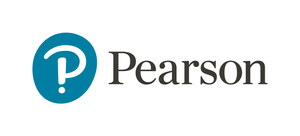
Pearson's Quotient® ADHD Test Shown to Detect "ADHD Fakers"
Poster Presentation at U.S. Psychiatric and Mental Health Congress 2013 Demonstrates Potential to Detect Feigned ADHD with Quotient's Computerized Assessment Technology
BLOOMINGTON, Minn., Oct. 1, 2013 /PRNewswire/ -- Pearson, the world's leading learning company, announced today that the company will present a poster on results from a pilot study of the company's newly acquired Quotient® ADHD Test demonstrating the technology's ability to detect individuals attempting to fake attention deficit hyperactivity disorder (ADHD).
The author-led poster presentation titled "Pilot Study: Detecting Feigned ADHD in Adults Using Computerized Assessment Technology" will be presented at the U.S. Psychiatric and Mental Health Congress 2013 in Las Vegas, NV on October 1, 2013 from 2:00 p.m. to 3:30 p.m. PT. The poster will be on display on Tuesday, October 1, 2013 from 11:00 a.m. to 4:00 p.m. and Wednesday, October 2, 2013 from 11:00 a.m. to 2:00 p.m. PT.
"These encouraging results indicate that the Quotient ADHD Test could be a widely applicable tool to assist experienced clinicians in detecting those persons who are feigning ADHD," commented Calvin Sumner, M.D., Chief Medical Officer for the Quotient Test at Pearson. "Pearson plans to pursue additional larger prospective studies to further investigate the positive preliminary results from this pilot study. The misuse and abuse of stimulant medications used to treat ADHD by college students and young adults has grown significantly over the past several years. There is an immediate need for accurate, objective assessments that can detect those attempting to portray themselves as having ADHD to fraudulently obtain controlled substances."
Numerous recent articles in the popular press and professional literature have begun to acknowledge that individuals have a number of incentives for feigning ADHD deficits. Few measures that are commonly used in the assessment of ADHD demonstrate adequate sensitivity to detect malingered ADHD symptoms, meaning that there is likely a high rate of false-positive diagnoses. On symptom rating scales, college students have proven able to simulate not only current symptoms of ADHD but childhood symptoms as well, making it impossible to determine whether an individual is faking or exaggerating symptoms based on self-report alone.
At the conference, Pearson will also present two additional posters including "Does Implementation of Quantitative Measurements of Activity and Attention Improve Outcomes Associated with Optimal Medication Titration in Patients with ADHD?" on Tuesday, October 1, 2013 and "Does Placebo Response Differ Between Objective and Subjective ADHD Measures?" on Wednesday, October 2, 2013.
About Pearson
Pearson is the world's leading learning company, providing educational materials and services and business information through the Financial Times Group. Pearson serves learners of all ages around the globe, employing 41,000 people in more than 70 countries. For more information, visit http://www.pearson.com/
About the Quotient® ADHD Test
The Quotient ADHD Test measures motion and analyzes shifts in attention state to give an objective picture of the core symptom areas of ADHD. Clinicians use the Quotient® ADHD Test at the initial visit to assess severity of the three core symptoms of ADHD; hyperactivity, inattention and impulsivity. Patients may be re-assessed periodically at follow-up visits to guide treatment plans. The clinician integrates the Quotient® report with information from other assessment tools and the clinical evaluation to help guide the discussion on the treatment plan. For more information, visit: http://www.quotient-adhd.com/
SOURCE Pearson






Share this article